- Home
- Patrick Robinson
Diamondhead Page 2
Diamondhead Read online
Page 2
And there were still Islamic extremists whose hatred of the Americans was so severe they would willingly sacrifice their own lives just for the chance to murder or maim members of the U.S. and British militaries, serving personnel who were essentially trying to help the country rejoin the international community. Every night they came, trying to fire rocket-propelled grenades, or RPGs, into the complex, trying to rig cars and trucks with explosives, trying to send in their suicide bomb squads to breach the complex before the American guards gunned them down.
It was a deadly environment, and everything was a struggle. The air conditioners struggled, the generators permanently had their backs to the wall, and the electricity supply was under constant surveillance. Men were always on edge. No one walked between the tents. Instead, all personnel wore hard combat hats, and raced over the sunbaked sand, crouched low, ready to hit the deck, at the distant scream of a rocket-propelled grenade. Or indeed the sight of the telltale white smoke that signaled the grenades of the Holy Warriors were coming in from across the far side of no-man’s-land.
No one went anywhere unarmed; every day there were missions, and every day there were armored convoys growling out onto the hot, dusty roads, dealing with trouble spots in the treacherous nearby towns of Fallujah, the notorious enclave of the insurgents, or, more likely, ar-Ramadi, often said to be the most dangerous place on earth. Sorties into Habbaniya, which lies between the two, were less frequent but just as dangerous.
There was a large reinforced concrete bunker inside the complex. This housed the main Command Center and the Military Intelligence Center. Like all U.S. military outposts where the main objective is to locate terrorists and insurgents, the entire operation at Camp Hitmen ran on information, gathered either electronically or firsthand. In the latter case, the information was either voluntarily offered or obtained by force.
Either way, it made no difference to the sun-bronzed warriors of the Camp Hitmen garrison. Their task on a daily basis was to round up the diabolical forces of al-Qaeda or the Taliban, and either capture or kill them, wiping out or imprisoning their commanders. Any damn thing necessary to stop the crazy pricks from taking another shot at a big American skyscraper.
We need to take ’em out, or pin ’em down, either right here or in Afghanistan. That way those suckers aren’t going anywhere else. That’s the plan. And it’s a plan that works.
The creed of the United States Special Forces was that simple. And every man understood it. They knew the risks, and were trained to take those risks. Which did not, however, make it any less dangerous or scary. It just made everyone better prepared, and angrier when things occasionally went wrong.
And during the past six months, there had been a new trend among the car bombers, booby-trap operators, and suicide killers that was causing the utmost concern among U.S. commanders—all of them, SEALs, Rangers, and Green Berets. The insurgents in Iraq seemed to have laid hands on a missile, fired from a handheld launcher, that could actually penetrate a tank or a heavily armed vehicle. And that was something to which no one was accustomed.
Powerful roadside bombs and various RPGs could certainly inflict heavy damage on a Humvee or a jeep, and some damage on an armored vehicle. But those brawny U.S. battlefield tanks could always take a hit and keep coming.
In the past six months the game had changed, though. Suddenly, there were instances of a tank-buster missile being launched by terrorists—a high-speed weapon that could rip through the fuselage of a tank, and decimate any other vehicle it hit. Americans were dying. They were being burned alive by this new enemy: not in large numbers, but sufficient to cause stern protests by Western nations about a missile that threatened to turn modern warfare into a horror scene from the Dark Ages.
One month ago the Security Council of the United Nations had categorically banned it, in a unanimous motion that declared the use of the missile “a crime against humanity.” With the support of Russia, China, India, and the European Union, this seemed a solid-enough UN edict to calm everyone’s fears about a new modern napalm outrage. The pictures of U.S. tank commanders burning alive from a chemical that could not be extinguished had shaken historians, politicians, and even journalists worldwide. And happily the ban was now in place.
However, as always, things looked very different out on the burning, sand-strewn highways of Iraq. Because someone had what seemed like an endless supply of this confounded missile. The Arab television station al-Jazeera referred to it as “the Diamondhead.” And the goddamned Diamondhead kept smacking into American armored vehicles and burning U.S. servicemen alive.
They did not, of course, all hit their targets. But two days ago, one of them, fired from the eastern side of the Euphrates, had slammed into a U.S. tank that was transporting an elite Navy SEAL team to a classified mission. None of the four Americans survived. Neither did the tank’s crew. No one could put out the fires that swiftly engulfed them.
The SEALs were seething with fury, and not just at the insurgents who had fired it. They were enraged by the Iranians who had supplied the now-illegal missile. That much was known, and never denied. But the SEALs were especially enraged at the arms corporation that manufactured the Diamondhead. The U.S. high command believed it was French, but could not pinpoint the factory. Unsurprisingly.
The Pentagon decreed the missile had been developed in its early stages by the vast European arms-producing network MBDA, a conglomerate made up of the top guided-missile corporations in Britain, France, Germany, Spain, and Italy. MBDA has ten thousand employees, and many subsidiaries. It is without question the world’s number-one maker of guided weapons systems. Its major shareholders are the European Aeronautic and Space Company, which in turn includes Aerospatiale-Matra Missiles of France.
So far as the head honchos in the Pentagon were concerned, the part that mattered was MBDA’s Euromissile, based in Fontenay-aux-Roses in France, home of the MILAN medium-range antitank weapon, godfather of the Diamondhead.
The latest MILAN packs one hell of a wallop. Within a two-mile range it can penetrate a thousand millimeters of Explosive Reactive Armor, or more than three meters of reinforced concrete. It has fantastic antijamming systems, weighs only forty-five kilograms, and can be handled by a two-man crew, the gunner to carry the firing post and the loader to carry the two missiles.
Whoever was responsible for the seriously improved Diamondhead was a missile genius. Step forward the shadowy scientist/salesman, known only as Yves. His pride and joy, the Diamondhead, was probably eight years ahead of anything Euromissile had on the drawing board for the MILAN. And it contained a barbaric burning ingredient that the big public European conglomerate would never dream of including.
However, the new United Nations edict had rendered the missile an outlaw even in the most vicious, amoral trade on earth. If anyone ever found out where the Diamondhead was being manufactured, that plant would become instant history.
The trouble was that no one had the slightest idea where this new “SuperMILAN” came from, not even the hard-eyed members of the widespread security system at MBDA. The Diamondhead was an international pariah, and it was currently protected by one of the most powerful men in France, a man who might shortly become impregnable.
Generally speaking, this was extremely bad news for the U.S. servicemen operating in Iraq. Like all national armies in pursuit of terrorists, the Americans operate under the most colossal disadvantage, because they cannot see their enemy, and neither can they see their enemy’s strongholds. Without effective military intelligence, they cannot locate the tribesmen who wish them dead; there is no recognized garrison at which to aim their fire. Their enemy wears no uniform, and often has no regard for his own life. Mostly, he strikes and retires. Other times, he surrenders immediately, seeking the ludicrous protection of the sixty-year-old Geneva Convention, the signatories of which did not have the murdering modern-day jihadist in mind.
In general terms, insurgents and terrorists are at a powerful disadvantage in term
s of weaponry, using old, inaccurate Kalashnikovs and unreliable homemade bombs. Give them, however, a state-of-the-art Diamondhead guided missile, newly delivered from Iran, and the game swings dramatically away from the status quo, in favor of the jihadists.
Navy SEAL Lt. Cdr. Mackenzie Bedford was reflecting on this precise new danger as he wrote home to his wife, Anne, in Dartford, Maine. Sprawled back on big olive-drab desert cushions in the corner of his tent nearest the air conditioner, Mack had just written:I guess by now you’ve read about the new tank-busting missile these maniacs are using against us. There’s no need to worry, the UN ban has kicked in now, and there’s only been one incident involving us during the past two weeks. We all watched that CBS report on television last week. Wildly exaggerated. As usual. . . .
Mack Bedford was thirty-three, a six-foot-three, bearded, 220-pound SEAL team leader of the highest caliber. When he shaved off his desert combat beard he looked like a youthful Clint Eastwood, same open, hard-eyed frankness, same rough-hewn edge to his face, same shock of dark hair except cut shorter. Mack had long been considered to be destined for top command in SPECWARCOM—ever since he’d passed out number one in his BUDs Class, Honor Man, ten years ago.
A native of coastal Maine, son of a shipyard engineer, Mac was a sensational swimmer, once having made the U.S. Nationals. Underwater he could make a porpoise look clumsy, and on land he was a tireless runner, with tree-trunk legs and lungs like a pair of Scottish bagpipes. He carried not one ounce of fat, and was just about unstoppable in unarmed combat. Mack, like almost every SEAL, was a high-intelligence killing machine.
Five local thugs, in a lonely bar in the Allegheny Mountains, had once made the truly astounding decision to pick a fight with him while he and Anne were enjoying a quiet drink just before they were married . . . Hey! This guy’s a Navy SEAL. Let’s find out how tough he really is . . .
Three of them ended up in the hospital, with two broken arms and a fractured skull. The other two ran for their lives, with Mack’s parting words ringing in their ears: “You’re lucky little sonsabitches. I might’ve killed you all by mistake.”
That was reputed to be the only civilian fight Mack Bedford had ever indulged in. But he’d seen close-quarter combat in most of the world’s hot spots, especially Afghanistan and Iraq. He was a brilliant sniper/marksman, and had himself been shot twice, both times in the upper arm while taking control of a Pashtun/Taliban village in the Afghan mountains. Jungle or desert, mountain or deep sea, Lieutenant Commander Bedford was a SEAL’s SEAL—trusted, relied upon, and the consummate American patriot. Honor Man indeed.
He ended his letter to Anne with the subject they were almost afraid to mention—their seven-year-old son, Tommy, and the terrible disease that doctors suspected may be destroying his nervous system. “I’ve checked the insurance out over and over, Anne,” he wrote,and the Navy has been fantastic. We’re covered and Tommy’s covered. But we have to find a place in the USA where they can carry out an operation on a kid this young. Let’s just hope the disease is not confirmed, and we’ll get a breakthrough in the next few months. I have to go now, but I’m always thinking of you. AND DON’T WORRY ABOUT ME. WE’RE FINE. RIGHT HERE IN CAMP HITMEN. WEATHER SUNNY! CHARLIE’S FRYING EGGS ON THE HOOD OF THE JEEP!
ALL MY LOVE, MACK
The big SEAL folded the paper and tucked it into an envelope. He had a lot on his mind, what with the missile and Tommy. For a few moments he just sat there on his king-sized cushion, contemplating the tough hand life had apparently dealt him, and hoping to God the friggin’ Iranians had at last exhausted their supplies of the Diamondhead.
Just then the tent flap was pulled back, and four of his buddies, Chief Petty Officer Frank Brooks, Petty Officer Billy-Ray Jackson, Gunner’s Mate Charlie O’Brien, and Chief Gunner Saul Meiers, came wandering in, all wearing desert “cammies” and their favored olive-drab-and-brown bandannas, or, in SEAL parlance, their “drive-on rags.” All four of them were sweating like dogs, armed and bearded, like most Special Forces operating in Muslim countries, where it may be necessary to work undercover among the tribesmen.
But the beard disguise was strictly double-edged, because every al-Qaeda leader understood that a bearded American serviceman was, without question, a lethal combat-trained member of the SEALs, Rangers, or Green Berets: a soldier to be either given a very wide berth or, if possible, captured, interrogated, tortured, and then beheaded. The half-trained tribesman did not usually have much luck in achieving any of the latter four options.
“Hey, Mack, how’s it looking?” asked Billy-Ray in that informal way SEALs have of speaking to each other, the serious business of rank being almost entirely cast aside among the front line of the U.S. combat elite. The practice of ignoring officer status among the SEALs was well known but often frowned upon by other service personnel. But other service personnel had not been through the murderous training of the SEALs, that relentless ordeal that hurls officers and men into an unbreakable brotherhood. Like a secret society, one that will bind them together for all of their days.
Mack looked up. “Jesus, you guys look awful. What’s up?”
“Training run, and a lot of people noticed you weren’t on it,” replied Billy-Ray, his good-natured black face beaming with humor.
“Tell ’em to go fuck themselves, would you?”
“Roger that, SIR.”
Laughing, all four of the visitors flopped down on the big cushions.
“We going out this afternoon, Mack?” asked Charlie O’Brien.
“Fifteen hundred hours, down to Abu Hallah if the guys aren’t back.”
“They’ll be back,” chuckled Billy-Ray in that deep Alabama voice of his. “Because we’re getting roast ham and black beans for lunch, and there ain’t no way Bobby and his guys gonna miss that.”
“Bobby and his guys might be under a bit of pressure this morning,” interjected Frank Brooks. “That truckload of marines those bastards blew up in North Baghdad last Friday got hit by a missile that caused a very big fire. Intel reckons the main insurgent force retreated way upriver to Abu Hallah. Bobby’s supposed to roust ’em out.”
“Better be careful they don’t have any of those goddamned Diamondheads left,” grunted Mack. “We’ll have to send Frank in to find ’em—his beard’s longer than Bin Laden’s.”
“Hey,” said Charlie. “Did I ever tell you what happened to Frank one time in some bar out in the eastern Rockies?”
“Jesus Christ,” said Chief Brooks, suspecting he was about to become a figure of fun.
“Well,” continued Charlie, “that beard of his was about as long as it is now. You know, can’t see his face, ’cept for his eyes. And sitting right there in that bar was an old Indian guy, kept on staring right at Frank.
“Finally, Chief Brooks looks up at him and says, ‘Who the hell are you lookin’ at?’—in that deep bassoon voice of his.”
And the SEALs predictably started laughing, even Frank.
“Well,” says Charlie, “the ole Indian took his pipe out of his mouth and said, ‘Sir, I ain’t staring. Nossir. But I ain’t been in this town for twenty-nine years, and last time I was here they put me in jail for fucking a buffalo . . . and I just thought you might be my son!’”
Charlie should, of course, have been a professional comic, and the SEALs rolled around on their cushions, laughing helplessly, as they usually did at his endless supply of jokes. Even big Frank Brooks was guffawing amiably.
Mack Bedford was more accustomed to the high standard of Charlie’s jokes because they had served together many times in SEAL Team 10’s Foxtrot Platoon. But the lieutenant commander had not heard this one before, and he fought off the all-encompassing sadness of Tommy’s illness, and yelled with laughter with the rest of his guys.
Charlie O’Brien was a top-class SEAL team gunner, a bull of a man in unarmed combat, who often acted as personal bodyguard to his CO. But he was younger than the others, and there were still those who considered his greatest asset
to be his uncanny ability to make the boss laugh. Lieutenant Commander Bedford thought the world of Charlie. Like many another Special Force commander, he also understood that the ability to find a touch of humor in even the most diabolical situation was an important military asset.
A lot of Foxtrot Platoon guys still remembered Charlie O’Brien after they blew apart a Taliban stronghold in southern Afghanistan. He had leaped to his feet, flung both arms diagonally skyward, yelling, “TOUCHDOWN!” At which point one last dying tribesman clambered out of the rubble and shot a hole in Charlie’s helmet. “FLAG ON THE PLAY!” bellowed Charlie. “NUMBER NINETEEN DEE-FENSE.” Then he picked up his rifle and blew the tribesman away. “Rude fucker,” he muttered.
Right now, in the tent, the laughter subsided, and Billy-Ray Jackson suggested they get out and find some of that roast ham and beans. But as they raised themselves up from the cushions, a SEAL lieutenant came running in shouting urgently, “Mack, Mack! We got a big problem. The guys have been hit badly in Abu Hallah. Tanks on fire, and Christ knows what else. Bobby’s dead. The guys are pinned down under heavy attack. We gotta go. This is battle stations—NO SHIT!”

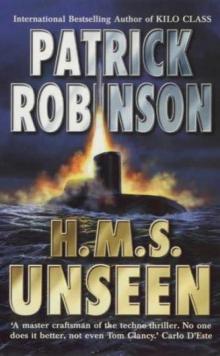 H.M.S. Unseen am-3
H.M.S. Unseen am-3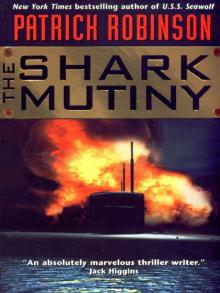 The Shark Mutiny (2001)
The Shark Mutiny (2001)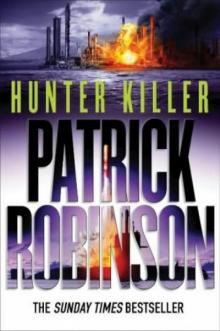 Hunter Killer am-8
Hunter Killer am-8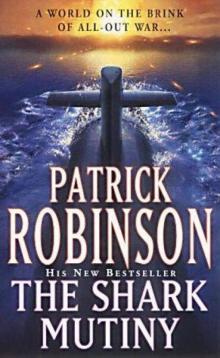 The Shark Mutiny am-5
The Shark Mutiny am-5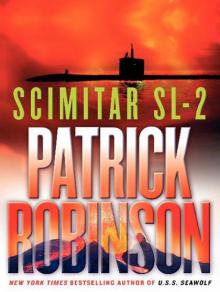 Scimitar SL-2
Scimitar SL-2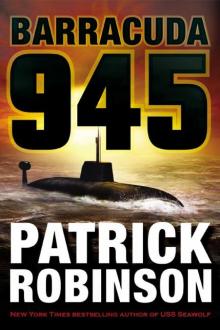 Barracuda 945 am-6
Barracuda 945 am-6 Hunter Killer
Hunter Killer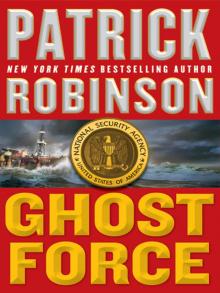 Ghost Force
Ghost Force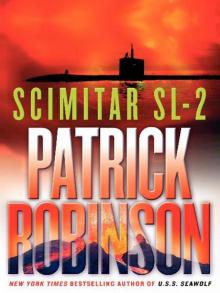 Scimitar SL-2 (2004)
Scimitar SL-2 (2004)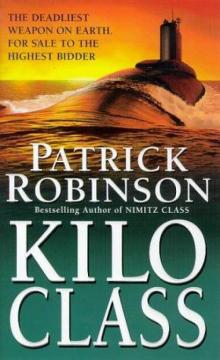 Kilo Class am-2
Kilo Class am-2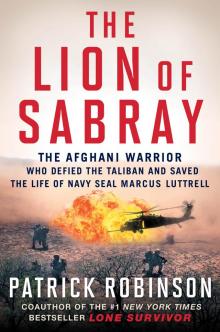 The Lion of Sabray
The Lion of Sabray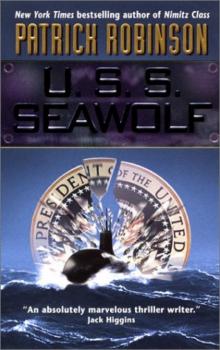 U.S.S. Seawolf am-4
U.S.S. Seawolf am-4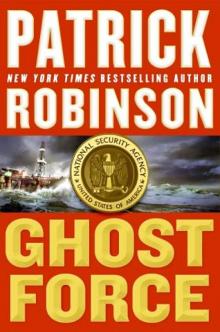 Ghost Force am-9
Ghost Force am-9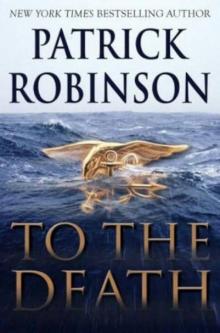 To the Death am-10
To the Death am-10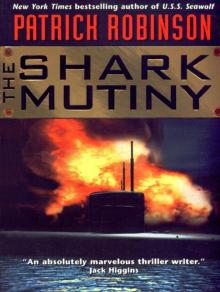 The Shark Mutiny
The Shark Mutiny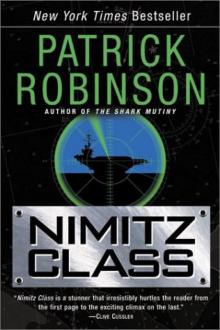 Nimitz Class am-1
Nimitz Class am-1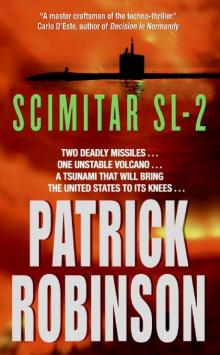 Scimitar SL-2 am-7
Scimitar SL-2 am-7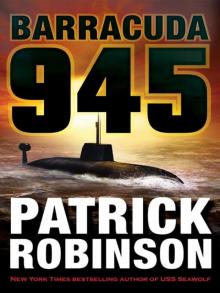 Barracuda 945
Barracuda 945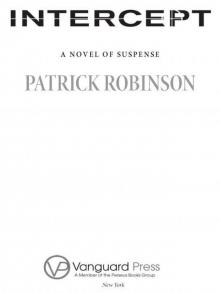 Intercept
Intercept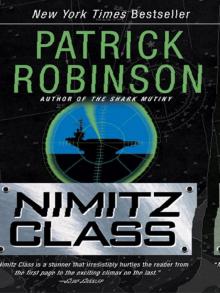 Nimitz Class (1997)
Nimitz Class (1997)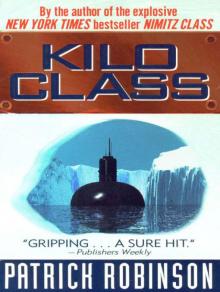 Kilo Class
Kilo Class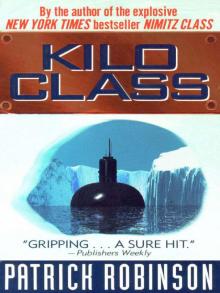 Kilo Class (1998)
Kilo Class (1998)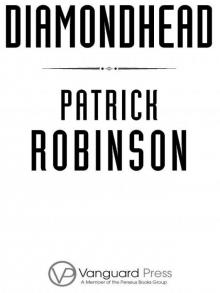 Diamondhead
Diamondhead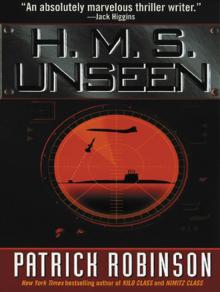 H.M.S. Unseen
H.M.S. Unseen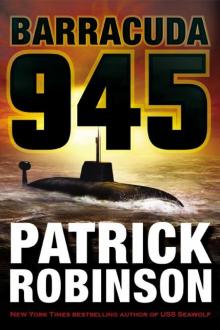 Barracuda 945 (2003)
Barracuda 945 (2003)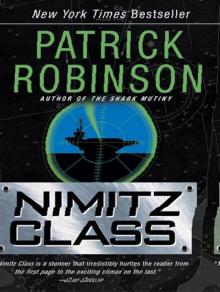 Nimitz Class
Nimitz Class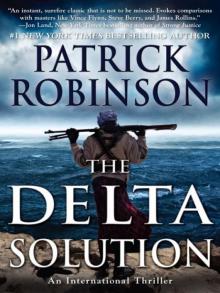 The Delta Solution
The Delta Solution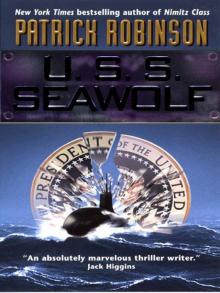 U.S.S. Seawolf
U.S.S. Seawolf